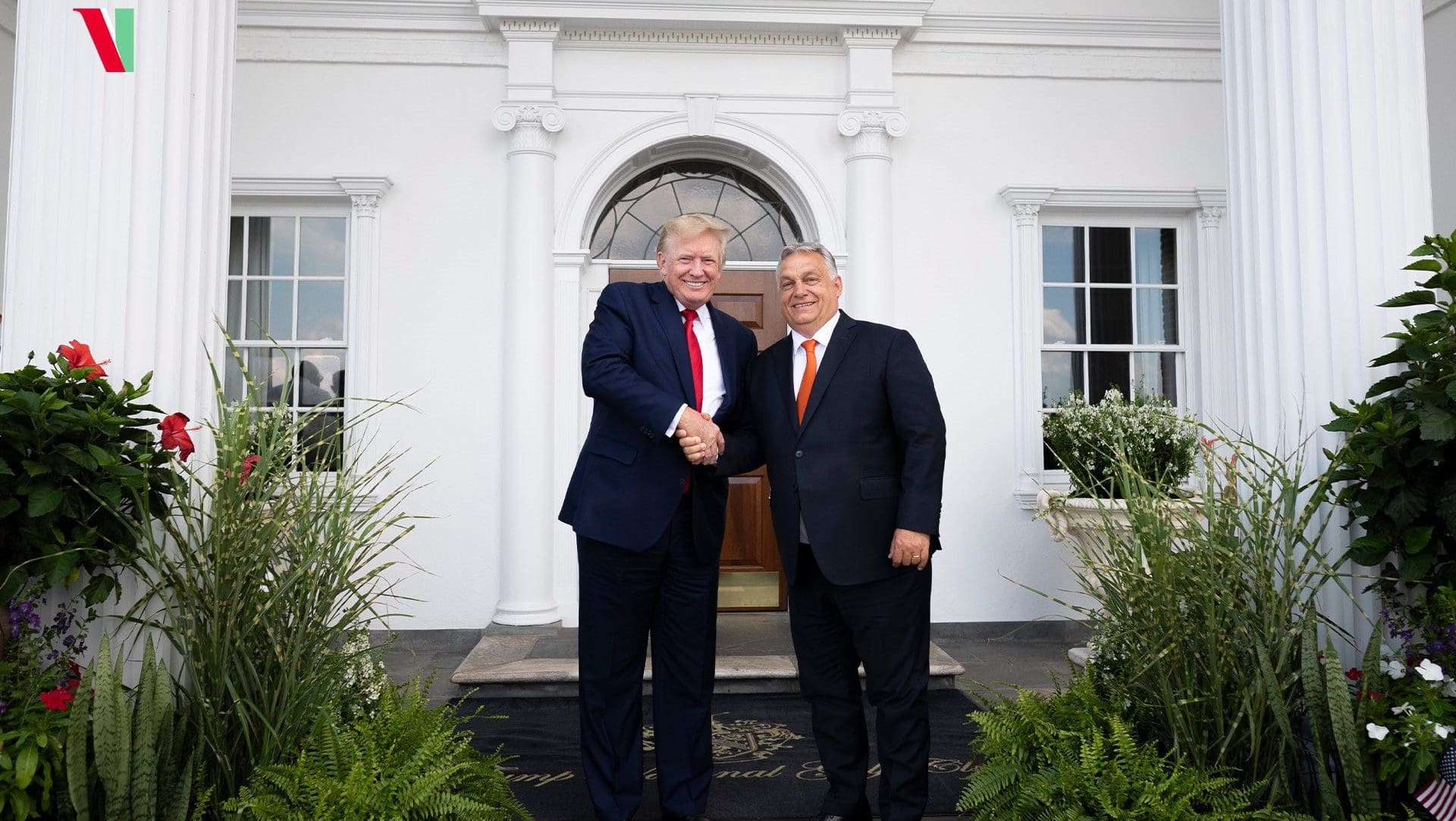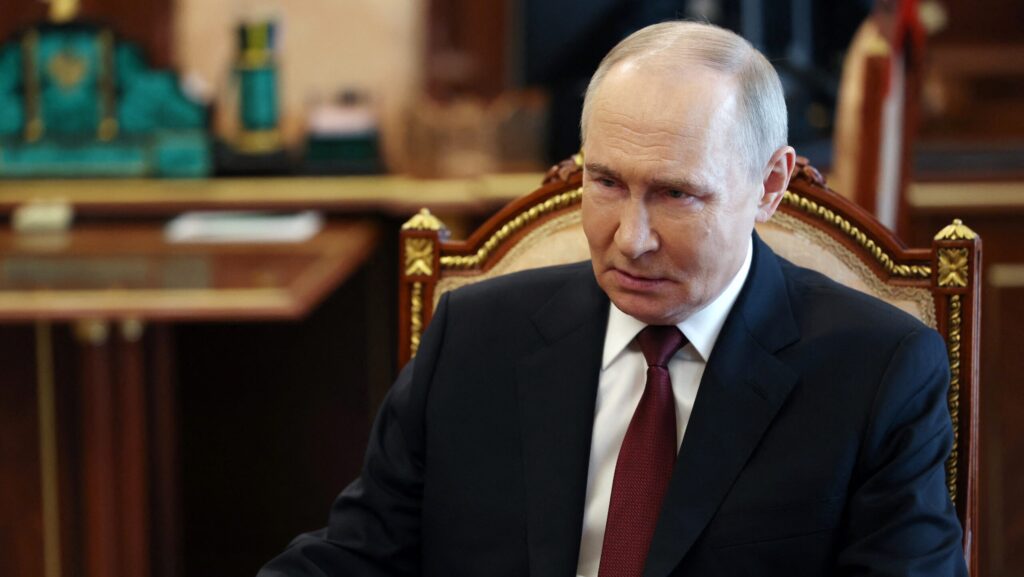The news of a Manhattan grand jury indicting Former President Donald Trump broke last Friday, 31 March. A few days later, on 3 April, Hungarian Prime Minister Viktor Orbán publicly showed his support for the former POTUS, sharing a picture of their shaking hands during his 2019 visit to the White House, along with the caption ‘Keep on fighting, Mr. President! We are with you.’ As of the time of writing this, the post has received 51,300 likes.
PM Orbán has been an avid advocate for President Trump in the past. As recently as last month, Orbán spoke favourably of him in his weekly radio interview, saying that peace would come a lot faster in the Russo-Ukrainian war if Trump were to take back the White House next year. Trump and his surrogates have attacked Manhattan District Attorney Alvin Bragg for receiving large campaign contributions from Hungarian-born American billionaire George Soros. This is another point the two right-wing politicians have in common, as Orbán has bashed the infamous left-wing financier in his campaign messaging in the past as well.
Evidently, the current Biden administration is not taking kindly to such statements about their political opponent currently being prosecuted. US Ambassador to Hungary David Pressman responded to the Prime Minister’s tweet, contrasting it with what Foreign Minister Péter Szijjártó said about the need to refrain from voicing opinions on the domestic issues of other countries.
Ambassador David Pressman on Twitter: “The Foreign Minister of Hungary, Péter Szijjártó, a few weeks ago: “We show our respect by not interfering in the internal politics of other countries, by not expressing our opinions or trying to influence them.” https://t.co/S6q9VLx8cU / Twitter”
The Foreign Minister of Hungary, Péter Szijjártó, a few weeks ago: “We show our respect by not interfering in the internal politics of other countries, by not expressing our opinions or trying to influence them.” https://t.co/S6q9VLx8cU
What Does a Grand Jury Indictment Mean?
In high-profile cases, the prosecution sometimes likes to defer the decision of indictment, meaning whether or not the case against a person can go forward with charges, to a so-called grand jury. Grand juries have 16–23 members, as opposed to the 6–12 jurors at trial. In Trump’s criminal case, the maximum, 23 people served as ‘the finder of facts’. A grand jury can either return with an indictment, or a ‘no true bill’ decision, which results in the person not being charged and the prosecution dropping the case.
Does the grand jury decision mean Donald Trump is likely to be found guilty by another jury at trial?
No, not likely. Grand jury decisions, unlike a trial jury, do not have to be unanimous, a simple majority vote is sufficient. The charges also do not need to be proven beyond a reasonable doubt, like at a criminal trial, only probable cause needs to be proven for an indictment. Even more nefariously, the defence does not have the opportunity to present its case to the civilians deciding on indictment—they only get to hear the prosecution’s side. However, what is bad news for Trump is that all members of his jury at trial will be New York City residents, one of the most liberal places in the world, as that is where the alleged crime took place.
Still, convincing every member of what is almost certainly going to be a full, 12-people jury thoroughly ‘voir dired’ by an expert legal team to convict a former President is a tall order. Many pundits are drawing comparisons to the case of former North Carolina Senator and 2004 Vice Presidential candidate John Edwards from the Democratic Party.
In 2011, Senator Edwards was also indicted by a grand jury on accusations very similar to Donald Trump’s.
Edwards used campaign funds to pay off his mistress to keep quiet about the extramarital affair and their child subsequently born out of wedlock. He engaged in this scheme ahead of the 2008 Democratic primary election for President, in order to not hurt his chances. His trial took place in April 2012, but the jury failed to make a unanimous decision, resulting in what is called a ‘hung jury’. This does not mean that the defendant has been exonerated, it is up to the prosecution to decide if they are going for another trial. In John Edward’s case, they did not do so, and it is likely what would happen in Trump’s case if the jury were to hang again.
Interestingly, one of the most prominent figures in the Democratic Party, former Speaker of the House Nancy Pelosi, has already made an embarrassing blunder when commenting on the contentious legal case. On Twitter, she claimed that President Trump, just like everyone else, ‘has the right to a trial to prove his innocence’. As pointed out by many in the replies, it is a universally acknowledged human right to be presumed innocent in the legal system, and it is the state’s duty to prove guilt beyond a reasonable doubt.
Nancy Pelosi on Twitter: “The Grand Jury has acted upon the facts and the law. No one is above the law, and everyone has the right to a trial to prove innocence. Hopefully, the former President will peacefully respect the system, which grants him that right. / Twitter”
The Grand Jury has acted upon the facts and the law. No one is above the law, and everyone has the right to a trial to prove innocence. Hopefully, the former President will peacefully respect the system, which grants him that right.
What Is Donald Trump Being Charged With?
Donald Trump has been indicted on 34 felony counts of falsifying business records in the first degree.
These all relate to the same act, President Trump disguising the $130,000 ‘hush money’ he paid to porn star Stormy Daniels, whom he’d had an extramarital affair with, as legal fees to his personal lawyer, Michael Cohen. He just reimbursed Cohen, who was the one turning the money over to Daniels, in 34 separate payments.
It is likely a bad faith decision on the DA’s part to charge the Former President with over 30 counts for the same misdeed. Mainstream news outlets also happily ran with the headline ‘Trump indicted on over 30 counts of business fraud’, which sounds a lot more serious than if it were only two or three chargeable offences. This way, it is also more likely to get a conviction, as the jury would have to acquit the defendant on all 34 counts one by one.
Trump pled not guilty to all 34 counts at his Tuesday, 4 April arraignment.
Another interesting development at the hearing was that the presiding Judge Juan Merchan decided not to allow cameras to record video in the courtroom during the trial, only photographs. Also, as Breitbart reported, Judge Merchan’s daughter worked on President Biden’s 2020 campaign. Furthermore, the prosecution’s key witness, Donald Trump’s former personal attorney Michael Cohen, pled guilty to perjury charges in 2018, thus his credibility in front of the jury can be easily attacked.
Donald Trump is the first incumbent or former US President to be indicted on criminal charges. Sitting President Ulysses S. Grant was arrested for speeding on his horse and buggy in Washington, DC by Officer William H. West in 1872, but that case was quickly handled in traffic court on the same day by the POTUS relinquishing his $20 bail.








